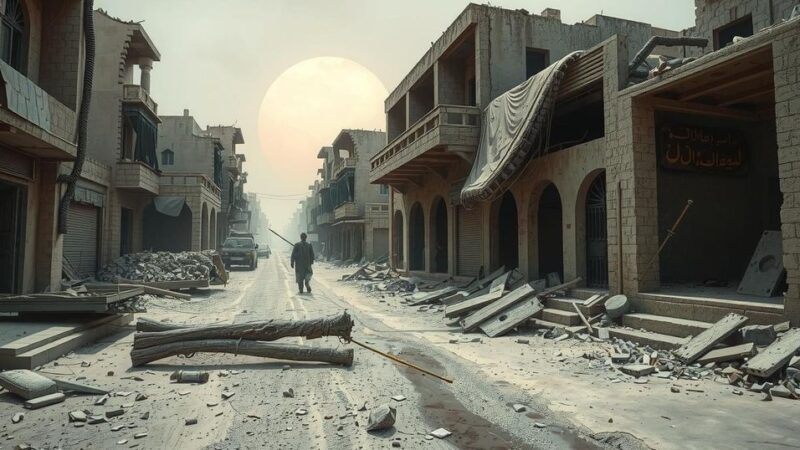Uganda has deployed special forces in South Sudan in response to escalating tensions between President Salva Kiir and Vice President Riek Machar. This troop movement aims to secure the capital, Juba, amid fears of renewed civil war and violence following the collapse of a power-sharing deal. Historical precedents underscore the risks of regional instability and refugee crises as a result of renewed conflict.
Uganda has recently deployed special forces in South Sudan as concerns rise regarding potential civil war in the nation. Tensions are escalating between President Salva Kiir and Vice President Riek Machar as their power-sharing agreement fails. On Tuesday, the military chief of Uganda announced that troops were dispatched to help secure Juba, South Sudan’s capital, amid ongoing clashes.
In a series of posts on X, Muhoozi Kainerugaba stated, “as of two days ago, our Special Forces units entered Juba to secure it”. He emphasized that the Ugandan military only recognizes President Salva Kiir, claiming that any aggression against him constitutes a declaration of war on Uganda. However, details regarding the duration of troop deployment or the nature of their assistance to Kiir remain unclear.
Recent days have witnessed sporadic fighting in South Sudan, raising fears of a resurgence of conflict between Kiir and Machar. Following a five-year civil war, the two leaders had signed a peace agreement in 2018. Kiir’s government has recently detained two ministers and several senior military figures allied with Machar, exacerbating tensions.
Clashes in the northern town of Nasir reportedly resulted in numerous casualties, including soldiers and a general. Despite Kiir’s assurances of preventing a return to warfare, analysts caution that the threat of renewed conflict persists. The United Nations has urged all involved parties to avoid violence, advocating for dialogue to urgently address the rising tensions in Nasir and beyond.
Uganda’s troop deployment in South Sudan echoes similar actions taken during the initial civil war in 2013 when Ugandan forces were sent to Juba to support Kiir. Although those troops were withdrawn by 2015, reinforcements were once again dispatched in 2016 following renewed hostilities. The current situation raises fears for Uganda about potential refugee influxes and further regional instability, prompting recent military movements across borders into the Democratic Republic of the Congo against Rwandan-backed rebels.
The deployment of Ugandan troops to South Sudan arises from escalating tensions between President Kiir and Vice President Machar amidst fears of civil war. While focusing on securing the capital Juba, the move reflects historical patterns of intervention and highlights concerns regarding potential regional instability. The international community, led by the United Nations, emphasizes the necessity for dialogue and peace to avoid conflict renewal and ensure security in South Sudan.
Original Source: www.aljazeera.com






